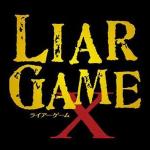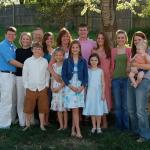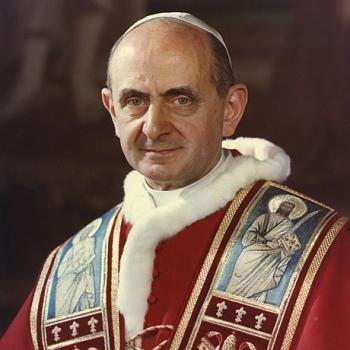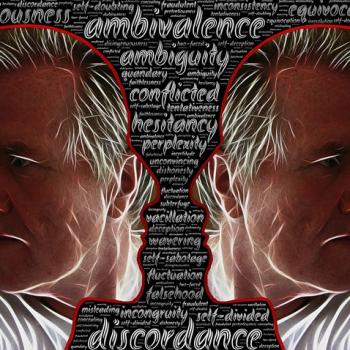President Harry Truman and Others Reveal Moral Qualms and Quandaries Concerning the Nuclear Bombing of Japan
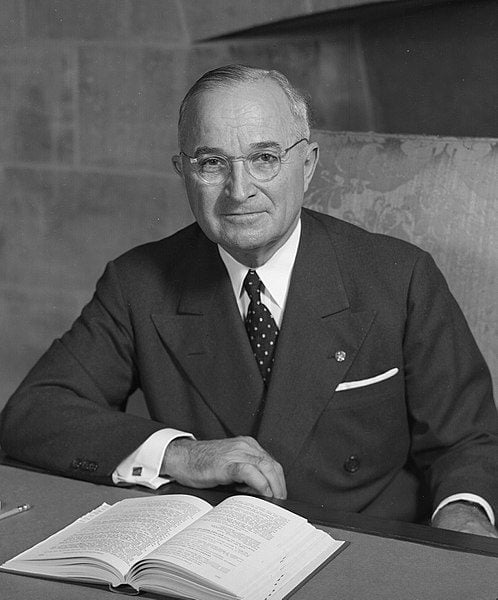
The first collection of these documents on the Internet which I will cite is: The Atomic Bomb and the End of World War II: A Collection of Primary Sources: National Security Archive Electronic Briefing Book No. 162, Edited by William Burr (posted on August 5, 2005).
The author states:
With the material that follows, the National Security Archive publishes the most comprehensive on-line collection to date of declassified U.S. government documents on the atomic bomb and the end of the war in the Pacific. Besides material from the files of the Manhattan Project, this collection includes formerly “Top Secret Ultra” summaries and translations of Japanese diplomatic cable traffic intercepted under the “Magic” program. Moreover, the collection includes for the first time translations from Japanese sources of high level meetings and discussions in Tokyo, including the conferences when Emperor Hirohito authorized the final decision to surrender.
. . . This briefing book will not attempt to answer these questions [various points of controversy briefly noted] or use primary sources to stake out positions on any of them . . . Instead, by gaining access to a broad range of U.S. and Japanese documents from the spring and summer of 1945, interested readers can see for themselves the crucial source material that scholars have used to shape narrative accounts of the historical developments and to frame their arguments about the questions that have provoked controversy over the years. To help readers who are less familiar with the debates, commentary on some of the documents will point out, although far from comprehensively, some of the ways in which they have been interpreted. With direct access to the documents, readers may be able to develop their own answers to the questions raised above.
[my kind of approach! Bravo!]
These are photographs of the government documents in pdf form. I will cite the summarizing blurbs on this page and give the URLs so anyone can read the primary documents which are thus summarized in a particular fashion. In any event, these documents will demonstrate that the persons involved were well aware that civilian casualties were involved (which supports my contention that it is ludicrous to assert that they neither knew the consequences, or that it is justifiable by the Catholic principle of “double effect”). They knew full well what they were doing. And not all were pleased with it.
Document 11: Assistant Secretary of War John J. McCloy, “Memorandum of Conversation with General Marshall May 29, 1945 – 11:45 p.m.,” Top Secret
Source: Record Group 107, Office of the Secretary of War, Formerly Top Secret Correspondence of Secretary of War Stimson (“Safe File”), July 1940-September 1945, box 12, S-1
Blurb (these will be in blue henceforth):
Apparently dissenting from the Targeting Committee’s recommendations, Army Chief of Staff George Marshall noted the “opprobrium which might follow from an ill considered employment of such force.” This document has played a role in arguments developed by Barton J. Bernstein that a few figures such as Marshall and Stimson were “caught between an older morality that opposed the intentional killing of noncombatants and a newer one that stressed virtually total war.”
Citation from another web page:
General Marshall said he thought these weapons might first be used against straight military objectives such as a large naval installation and then if no complete result was derived from the effect of that, he thought we ought to designate a number of large manufacturing areas from which the people would be warned to leave-telling the Japanese that we intended to destroy such centers. There would be no individual designations so that the Japs would not know exactly where we were to hit-a number should be named and the hit should follow shortly after. Every effort should be made to keep our record of warning clear. We must offset by such warning methods the opprobrium which might follow from an ill considered employment of such force.
Document 12: “Notes of the Interim Committee Meeting Thursday, 31 May 1945, 10:00 A.M. to 1:15 P.M. – 2:15 P.M. to 4:15 P.M.,” n.d., Top Secret
Source: RG 77, MED Records, H-B files, folder no. 100 (copy from microfilm)
. . . Interested in producing the “greatest psychological effect,” the Committee members agreed that the “most desirable target would be a vital war plant employing a large number of workers and closely surrounded by workers’ houses.” Bernstein argues that this target choice represented an uneasy endorsement of “terror bombing”–the target was not exclusively military or civilian; nevertheless, workers’ housing would include noncombatant men, women, and children.
Document 15: Memorandum of Conference with the President, June 6, 1945, Top Secret Source: Manuscripts and Archives, Yale University Library, Henry Lewis Stimson Papers (microfilm at Library of Congress)
. . . At the end, Stimson shared his doubts about targeting cities and killing civilians through area bombing because of its impact on the U.S.’s reputation as well as on the problem of finding targets for the atomic bomb. Barton Bernstein has also pointed to this as additional evidence of the influence on Stimson of “an older morality.”
Document 38: Truman’s Potsdam Diary, Barton J. Bernstein, “Truman At Potsdam: His Secret Diary,” Foreign Service Journal, July/August 1980, excerpts, used with author’s permission
Some years after Truman died a hand-written diary that he kept during the Potsdam conference surfaced in his personal papers. For convenience Barton Bernstein’s rendition is provided here but linked here are the scanned versions of Truman’s handwriting on the Truman Library’s web site (for 16 July and 17-30 July respectively).
The diary entries cover July 16, 17, 18, 20, 25, 26, and 30 and include Truman’s thinking about a number of issues and developments, including his reactions to Churchill and Stalin, the atomic bomb and how it should be targeted, the possible impact of the bomb and a Soviet declaration of war on Japan, and his decision to tell Stalin about the bomb. Receptive to pressure from Secretary of War Stimson, Truman recorded his decision to take Japan’s “old capital” (Kyoto) off the atomic bomb target list. Barton Bernstein and Richard Frank, among others, have argued that Truman’s assertion that the atomic targets were “military objectives” suggested that either he did not understand the power of the new weapons or had simply deceived himself about the nature of the targets.
Document 58: Memorandum of Conference with the President, August 8, 1945 at 10:45 AM
Source: Henry Stimson Diary, Manuscripts and Archives, Yale University Library, Henry Lewis Stimson Papers (microfilm at Library of Congress)
At their first meeting after the dropping of the bomb on Hiroshima, Stimson briefed Truman on the scale of the destruction, with Truman recognizing the “terrible responsibility” that was on his shoulder.
Document 65: Diary Entry, Friday, August 10, 1945, Henry Wallace Diary
Source: Papers of Henry A. Wallace, Special Collections Department, University of Iowa Libraries, Iowa City, Iowa (copy courtesy of Special Collections Department)
Secretary of Commerce (and former Vice President) Henry Wallace provided a detailed report on the cabinet meeting where Truman and his advisers discussed the Japanese surrender offer, Russian moves into Manchuria, and public opinion on “hard” surrender terms. With Japan close to capitulation, Truman asserted presidential control and ordered a halt to the atomic bombings. Barton J. Bernstein has suggested that Truman’s comment about “all those kids” showed his belated recognition that the bomb caused mass casualties and that the target was not purely a military one.
Quote from the above: “Truman said he had given orders to stop atomic bombing. He said the thought of wiping out another 100,000 people was too horrible. He didn’t like the idea of killing, as he said, “all those kids.”
Footnote 48:
Truman’s letter to Senator Richard B. Russell [link now defunct]: August 9, 1945:
Dear Dick:
I read your telegram of August seventh with a lot of interest.
I know that Japan is a terribly cruel and uncivilized nation in warfare but I can’t bring myself to believe that, because they are beasts, we should ourselves act in the same manner.
For myself, I certainly regret the necessity of wiping out whole populations because of the “pigheadedness’ of the leaders of a nation and for your information, I am not going to do it unless it is absolutely necessary. It is my opinion that after the Russians enter into war the Japanese will very shortly fold up.
My object is to save as many American lives as possible but I also have a humane feeling for the women and children in Japan.
Russell had written to President Truman on August 7:
This was a total war as long as our enemies held all of the cards. Why should we change the rules now, after the blood, treasure and enterprise of the American people have given us the upper hand.
Next, from the Internet info-page: The Decision to Drop the Atomic Bomb:
Smyth report on atomic bomb: August 6, 1951:
“Then,” the President said Stimson and I began to discuss the use of the bomb. It was my suggestion that we pick out a place to drop it as near a war plant as possible so as not to injure any more people than necessary. He said he conferred not only with Stimson but with Byrnes and Admiral Leahy and the decision was reached to drop the bombs on Hiroshima and Nagasaki. The President said that the military leaders believed, up to that time, that it would require an army of at least a million Americans to defeat Japan and they told the President, in answer to his inquiries that they estimated there would be about 25% casualties. He said he asked what the population of Hiroshima was and his recollection was that they said about 60,000. He said that he felt and said it was far better to kill 60,000 Japanese than to have 250,000 Americans killed and he, therefore, ordered the dropping of the bomb on Hiroshima and Nagasaki.
[Note then, that Truman was not averse to wiping out the entire population of Hiroshima; yet we are told that he did not intend to target civilians, and that this was an unintended effect of a military strike]
President Truman to Samuel McCrea Cavert, August 11, 1945
Nobody is more disturbed over the use of Atomic bombs than I am but I was greatly disturbed over the unwarranted attack by the Japanese on Pearl Harbor and their murder of our prisoners of war. The only language they seem to understand is the one we have been using to bombard them.
When you have to deal with a beast you have to treat him as a beast. It is most regrettable but nevertheless true.
Samuel McCrea Cavert to President Truman, August 9, 1945 [link now defunct]
[a plea from a Christian to reconsider the bombings; Truman was responding to this in the above letter]
Many Christians deeply disturbed by use of atomic bombs against Japanese cities because of their necessarily indiscriminate destructive efforts . . .
Federal Council of the Churches of the Churches of Christ in America
Samuel McCrea Cavert, General Secretary
ENCLOSURE “A”: THE EVALUATION of the ATOMIC BOMB as a MILITARY WEAPON
The Final Report of the Joint Chiefs of Staff Evaluation Board For Operation Crossroads
30 June 1947
Six–Consideration of Targets
1. The selection of targets for attack by atomic weapons must take account of the number of such weapons available in the predictable future. Thus selection and priority of targets become of prime importance in the employment of the weapon.
2. The correlation of the results of the explosions of atomic bombs over Japanese cities and against naval vessels, at Bikini, gives ample evidence that the bomb is pre-eminently a weapon for use against human life and activities in large urban and industrial areas, as well as seaports.
[ . . . ]
Seven–Effectiveness of the Bomb against Cities
1. However feasible passive means of defense may prove for small vital installations, such protection will be inadequate for a city. Its structures and inhabitants, except as interception measures at a distance are effective, are fully vulnerable to atomic bomb attack.
2. Conventional methods of fire control, emergency policing, care of the wounded and the restoration of essential services would certainly mitigate the results no matter how extensive. But the personnel for these services would have to be recruited from outside the area and where radioactive contamination existed could enter it only with extreme difficulty and after some lapse of time.
Letter from the President to Atomic Energy Commissioner Thomas E. Murray, January 19, 1953
I rather think you have put a wrong construction on my approach to the use of the Atomic bomb. It is far worse than gas and biological warfare because it affects the civilian population and murders them by the wholesale.
From the web page: Hiroshima: Harry Truman’s Diary and Papers:
7/25/45 Diary Entry:
We met at 11 A.M. today. That is Stalin, Churchill and the U.S. President. But I had a most important session with Lord Mountbattan & General Marshall before than. We have discovered the most terrible bomb in the history of the world. It may be the fire destruction prophesied in the Euphrates Valley Era, after Noah and his fabulous Ark.
Anyway we ‘think’ we have found the way to cause a disintegration of the atom. An experiment in the New Mexican desert was startling – to put it mildly. Thirteen pounds of the explosive caused the complete disintegration of a steel tower 60 feet high, created a crater 6 feet deep and 1,200 feet in diameter, knocked over a steel tower 1/2 mile away and knocked men down 10,000 yards away. The explosion was visible for more than 200 miles and audible for 40 miles and more.
The weapon is to be used against Japan between now and August 10th. I have told the Sec. of War, Mr. Stimson, to use it so that military objectives and soldiers and sailors are the target and not women and children. Even if the Japs are savages, ruthless, merciless and fanatic, we as the leader of the world for the common welfare cannot drop this terrible bomb on the old capital or the new [Kyoto or Tokyo].
He [Stimson] and I are in accord. The target will be a purely military one and we will issue a warning statement [known as the Potsdam Proclamation] asking the Japs to surrender and save lives. I’m sure they will not do that, but we will have given them the chance. It is certainly a good thing for the world that Hitler’s crowd or Stalin’s did not discover this atomic bomb. It seems to be the most terrible thing ever discovered, but it can be made the most useful.
8-9-45 public statement:
The world will note that the first atomic bomb was dropped on Hiroshima, a military base.
See also Documents Relating to American Foreign Policy: Hiroshima.
In more than one letter, Truman justifies the use of nuclear bombs based on the fact that the Japanese had attacked Pearl Harbor. For example, in a public statement of 8-6-45: “The Japanese began the war from the air at Pearl Harbor. They have been repaid many fold.”
Doug Long, in his thoughtful, thought-provoking page, Hiroshima: Random Ramblings, provides appropriate closing thoughts:
Was President Truman a Bad Guy?
I am not interested in “finding fault” with President Truman. From reading his diary, his letters to his wife, and accounts of private conversations he had with others, I’ve come to the conclusion that Truman believed dropping atomic bombs on Japan would save American lives. After studying Harry Truman and the awful cup that passed to him, my heart goes out to him. He was happy in the Senate and did not want to become Vice-President or President. When the presidency was thrust upon him, we were struggling through one of the most crucial and chaotic periods in our nation’s history. To make matters worse, neither Roosevelt nor Truman had taken care to see that Truman was well-informed on the war situation. Not surprisingly, the new President, by his own admission, was overwhelmed by the tasks facing him. . . .
Didn’t the Japanese Deserve It?
Perhaps some did; many atrocities were committed by Japanese soldiers against American POWs and other people as well. But those who “deserved it” were not the primary targets of the atomic bombs. The primary targets were civilians who were much like us, who had no control over government policy, who feared the war and wished it would stop, and who were propagandized by their government into believing that God was on their side. Those whom the Allies decided “deserved it” were tried at the Tokyo War Crimes trials.
Although he never publicly admitted it, President Truman had his misgivings about using a-bombs on cities. On Aug. 10, 1945 (the day after the Nagasaki bomb), having received reports and photographs of the effects of the Hiroshima bomb, Truman ordered a halt to further atomic bombings. . . .
On July 21, 1948 Truman confided some other private thoughts on the atomic bomb to his staff. Chairman of the Atomic Energy Commission David Lilienthal recorded Truman’s words in his diary that night, along with Lilienthal’s own observations in parentheses:
“I don’t think we ought to use this thing [the A-Bomb] unless we absolutely have to. It is a terrible thing to order the use of something that (here he looked down at his desk, rather reflectively) that is so terribly destructive, destructive beyond anything we have ever had. You have got to understand that this isn’t a military weapon. (I shall never forget this particular expression). It is used to wipe out women and children and unarmed people, and not for military uses.”
(David Lilienthal, The Journals of David E. Lilienthal, Vol. Two, pg. 391) [my — i.e., Long’s — emphasis].
Truman’s candid comments underscored the indiscriminate power of the atomic bomb that causes it to kill people we don’t want to kill.
***
(originally 8-29-05)
Photo credit: President Harry S. Truman [public domain / Wikimedia Commons]
***


